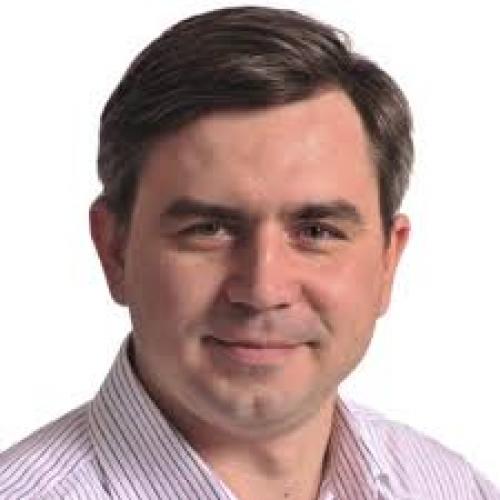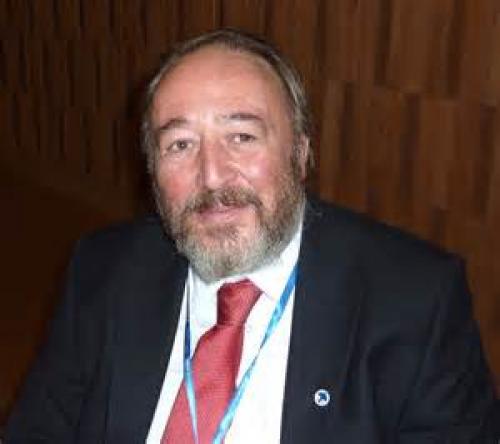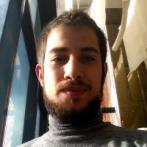|
|
Othon Michail is an Assistant Professor at the Department of Computer Science of the University of Liverpool (UoL) since 2016. He is also a member of the research team of the Leverhulme Centre for Functional Materials Design and a member of the council of the Networks Sciences & Technologies initiative (NeST). His research interests are Distributed Computing, Algorithms and Complexity, Computability, Algorithmic Theory of Dynamic Networks, and Programmable Matter. In 2017, he started and is leading since then the "Programmable Matter" initiative at the UoL, an interdisciplinary collaboration between CS, EEE, the School of Engineering, and external collaborators. He has been awarded a Royal Society International Exchanges award together with Prof. Julien Bourgeois. He is currently supervising and co-supervising 4 Ph.D. students whose work is related to programmable matter. His work within this area focuses on formal models, the design and analysis of centralized and distributed reconfiguration algorithms, and feasibility and complexity characterizations. |
|
|
Igor Potapov is a Professor in the Department of Computer Science within the University of Liverpool and a Leader of the Algorithms, Computational Complexity Theory and Optimisation Group. His research covers a wide spectrum of Theoretical Computer Science, including automata and formal language theory, reachability problems in infinite state systems, computational problems in matrix semigroups and design of efficient sequential/parallel/distributed algorithms. He is a full member of the EPSRC College. His research was funded by EPSRC, Royal Academy of Engineering, Royal Society, London Mathematical Society, Leverhulme Trust. At the moment he is a Co-Investigator in the EPSRC Centre for Topological Data Analysis (2018-2023) and on the £10M Leverhulme Centre in Material Design project (2016-2026) focusing on the design of revolutionary algorithmic methods for finding low energy atomic structures to obtain new materials. He served as a PC Chair at MFCS2018, DLT2015 and several RP conferences. He has over 90 peer-reviewed conference or journal publications in a synergy of traditional mathematical fields of study with algorithms and the theory of computation. He successfully supervised several postdocs and graduated 5 PhD students. Currently he supervises 5 PhD students working on theoretical and applied problems in computer science and mathematics. |
 |
Paolo Paoletti
Associate Professor
|
 
 |
|
Paolo Paoletti is a Senior Lecturer (Associate Professor) in Control at the University of Liverpool. He is also a member of the Risk Institute, the Centre of Autonomous Systems Technologies and the Leverhulme Centre for Functional Materials Design. His research interests span mathematical modelling, control theory, biomechanics, robotics, sensing and machine learning. Dr Paoletti’s work has been funded by EPSRC, InnovateUK, H2020, Royal Academy of Engineering and industry (Jaguar Land Rover, Renishaw, a2e VC etc.) over several years and projects. In 2014 the EPSRC recognised him as "Rising Stars" (awarded to 10 UK scientists/engineers who are "tipped to lead internationally excellent research in the future"). He is leading the @LERT (@ Liverpool Engineering Robotics Technologies) lab, where state-of-the-art mechanical and electronic prototyping facilities, design stations and high-performance computing for numerical simulations are available for developing the next generation of robots. |
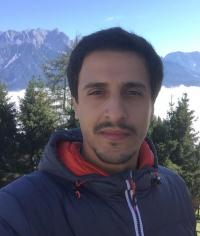 |
Abdullah Almethen
Ph.D. Student
|
  |
|
Abdullah Almethen is a 3rd year PhD student in the Department of Computer Science at the University of Liverpool. He is a member of two groups, the Network and Distributed Computing Group and the Algorithms, Complexity Theory and Optimisation Group, at the Department of Computer Science. He is working under the supervision of Prof. Igor Potapov and Dr. Othon Michail. His research focuses on designing efficient transformations and reconfiguration algorithms for Programmable Matter; in particular, investigating the linear-strength pushing mechanism of modules in static environments. He has a publication in ALGOSENSORS in the area of Programmable Matter. Before that, he received a bachelor’s degree and an MSc, both in Computer Science, from Qassim University and East Stroudsburg University, respectively. |
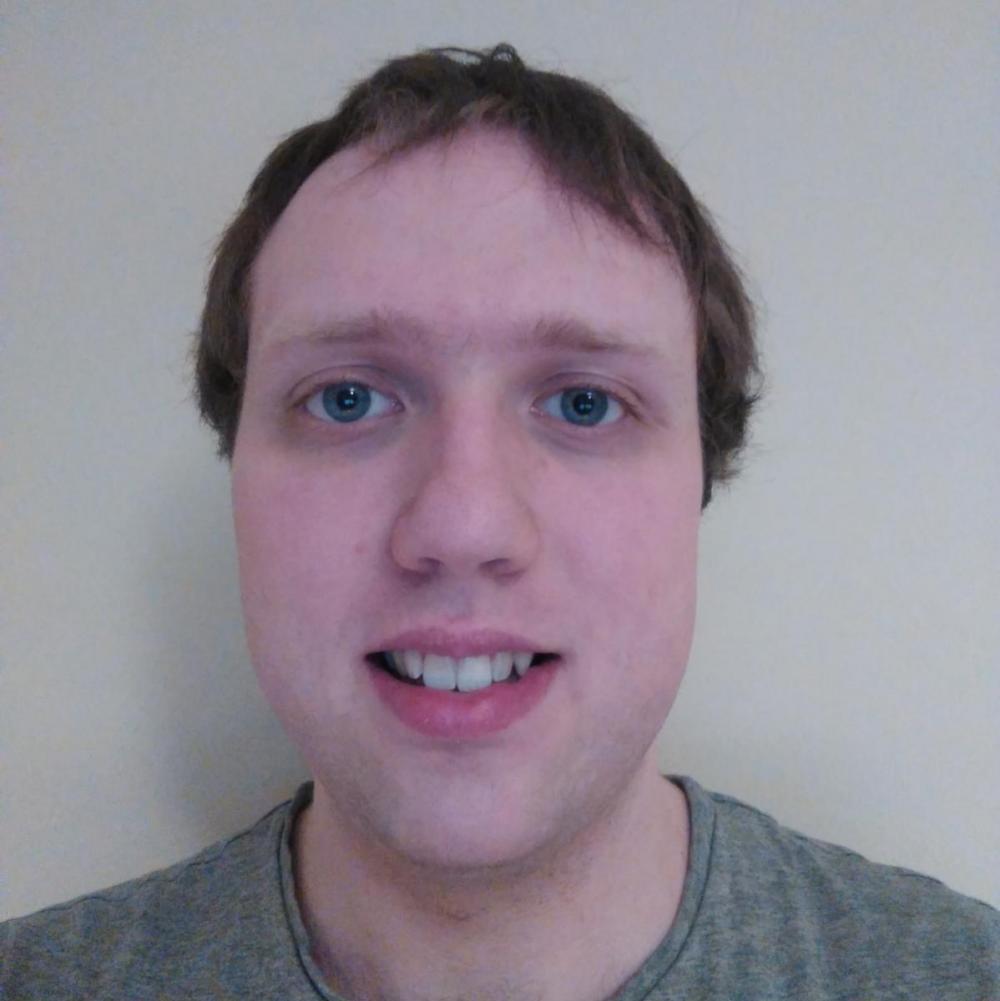 |
Matthew Connor
Ph.D. Student
|
 |
|
Matthew Connor is a PhD student at the University of Liverpool in the United Kingdom. He is a member of the Networks & Distributed Computing research group at the Department of Computer Science. He is supervised by Dr. Othon Michail and Prof. Igor Potapov. His research interests include Distributed Computing, Population Protocols and Programmable Matter. He has been working on these topics since October 2018, after he finished an MSc in Advanced Computer Science at the same university. He is currently investigating Population Protocols with Network Constructors. His goal is to find a way to characterise fast algorithms in this area. |
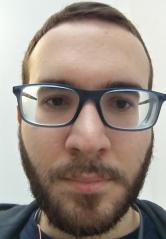 |
George Skretas
Ph.D. Student
|
  |
|
George Skretas is a 2nd year PhD student at the Department of Computer Science of the University of Liverpool. He received his bachelor's degree in Computer Science from the University of Patras and his research interests include Distributed Algorithms, Programmable Matter and Graph Theory. He has publications in ICALP/JCSS on the topic of programmable matter and he is involved in the "Algorithms and Complexity of Reconfiguration by 3D Catoms" project. |
Publications
[1] Othon Michail, George Skretas, Paul G. Spirakis. On the transformation capability of feasible mechanisms for programmable matter. Journal of Computer and System Sciences, 102, pages 18-39, 2019. Also in ICALP 2017.
[2] Abdullah Almethen, Othon Michail, Igor Potapov. Pushing lines helps: efficient universal centralised transformations for programmable matter. ALGOSENSORS, pages 41-59, 2019.
[3] Othon Michail, Paul G. Spirakis. Elements of the theory of dynamic networks. Communications of the ACM, 61(2), pages 72-81, 2018.
[4] Othon Michail. Terminating distributed construction of shapes and patterns in a fair solution of automata. Distributed Computing, 31(5), pages 343-365, 2018. Also in PODC 2015.
[5] Othon Michail, Paul G. Spirakis. Connectivity preserving network transformers. Theoretical Computer Science, 671, pages 36-55, 2017.
[6] Othon Michail, Paul G. Spirakis. Simple and efficient local codes for distributed stable network construction. Distributed Computing, 29(3), pages 207-237, 2016. Also in PODC 2014.


